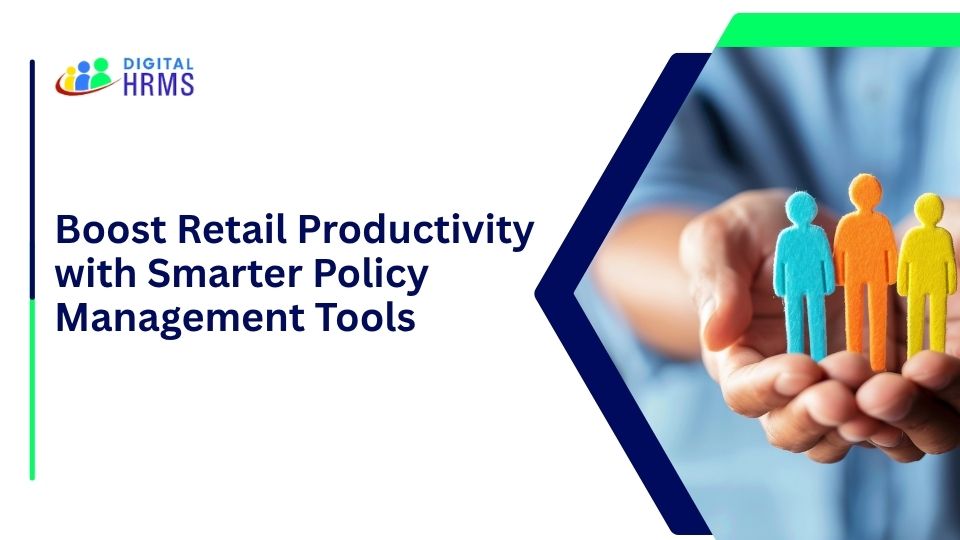Improving Workforce Efficiency: Choosing the Right Policy Management Tools for Your Retail Business

In the retail world, precision is everything. Every moment spent sorting out confusion over store protocols, missing documentation, or outdated policies chips away at productivity. With tight margins and high customer expectations, having clear, accessible, and current company policies isn’t just nice to have-it’s essential. The foundation of operational integrity rests on effective policy management.

The Complexity of Policy Management in Retail
Retail operations cover vast geographic areas, involve a diverse range of employees, and change rapidly to meet market demands. Managing organizational policy in such a fast-paced environment is no small feat. High employee turnover, seasonal hiring, and part-time staff only heighten the need for consistent policy communication. To make matters worse, many retail businesses still depend on static documents scattered across different platforms-an outdated method that leads to mistakes and inefficiencies.
Why Policy Documents Matter for Retail Businesses
A well-crafted policy document acts like a guiding star for every employee. Whether it’s detailing customer service standards, dress codes, or data handling procedures, these documents help align behaviour across the board. For retailers, they minimize legal risks, ensure compliance, and streamline operations. Most importantly, they create a consistent brand experience across all locations-something that consumers expect but businesses often find challenging to achieve without solid internal documentation.
Source: Freepik.com
Characteristics of an Effective Policy Management Tool
A solid policy management system should do more than just store documents digitally, it needs to serve as a dynamic framework that guides how an organization operates. Here are some key features that make a policy management tool truly effective:
- Centralized Repository: A single, easily accessible location for all policies, available 24/7 to every employee, no matter their role or where they are.
- Version Control: This feature ensures that employees are always looking at the most current guidelines. Every change is logged with a timestamp, making it easy to track revisions.
- Digital Acknowledgment: Employees can electronically sign off on documents, with all records kept safe for future audits.
- Mobile Accessibility: Field workers and store staff can access important documents while on the move.
These features work together to eliminate confusion, lighten the administrative load, and promote accountability.
How Poor Documentation Hampers Workforce Efficiency
When policies are inconsistent or poorly managed, it can lead to chaos. Retail employees often waste hours trying to clarify procedures that should be clearly defined. This not only leads to disengagement and avoidable errors but also leaves customers dissatisfied. Additionally, HR teams find themselves overwhelmed with repetitive questions that could easily be answered with self-service access to company policy documents. This unnecessary loss of time and productivity is something that can be avoided.
With turnover hovering around 60% annually Business Research Insights, maintaining up-to-date company policy documents is a logistical nightmare. Misaligned organization policy across multiple stores leads to inefficiency and risk. A robust documentation system ensures clarity, legal adherence, and consistent accountability across the chain.
Digital HRMS Policy Management Module: A Strategic Enabler
The Digital HRMS brings to the table a robust Policy Management module tailored to keep up with the fast-paced world of retail. It shifts policy governance from being a mere formality to a dynamic, automated process.
- Centralized Management: All company policies are stored in one easy-to-search platform, allowing employees to quickly access the most current documents.
- Automated Notifications: Whenever a document is updated or added, stakeholders get instant notifications. Say goodbye to those “I didn’t know” moments.
- Version Control & Audit Trails: Managers can see who accessed what and when, along with whether they’ve acknowledged the documents.
- Insightful Analytics: The system generates detailed reports on how policies are being engaged with, helping HR identify any communication gaps.
This smart integration not only ensures consistency but also boosts efficiency-two key ingredients for operational excellence.
GDPR-Compliant Policy Management: The Need for Data Integrity
For retailers operating in or with the EU, prioritizing data privacy is a must. The Digital HRMS Policy Management module is fully compliant with GDPR, ensuring that sensitive employee data is handled and stored legally.
- Consent Tracking: Employees need to acknowledge that they’ve received and understood the policies, which is a crucial requirement under GDPR.
- Secure Access Controls: Only those with the right permissions can edit or share policy documents.
- Audit Logs: Every action taken within the system is logged, ensuring complete transparency and accountability.
By adhering to global data protection standards, the platform protects both the organization’s interests and the rights of individuals.
Discover the Business Benefits of Automating Company Policies Management
When you streamline policy management, you can see real results, such as:
- Speedy Onboarding: New employees can quickly get up to speed with company standards thanks to immediate access to the latest documents.
- Lower Compliance Risks: Automated updates and reminders help ensure that no important policy changes slip through the cracks.
- Empowered Workforce: Giving staff self-service access to policies boosts their independence and confidence.
- Improved Productivity: With fewer questions to clarify, employees can focus more on delivering value in their roles.
In the fast-paced world of retail, where consistency and speed are crucial, this kind of automation can truly transform operations.
Conclusion
As the retail landscape changes, so too must the internal structures that support it. Having clear, timely, and easily accessible policy documentation is essential-it’s not just a nice-to-have, but a strategic necessity. By investing in a smart, automated solution like the Digital HRMS Policy Management module, retailers can enhance efficiency, maintain compliance, and cultivate a more engaged workforce. The future of productivity in the workplace lies in systems that anticipate needs and respond instantly.